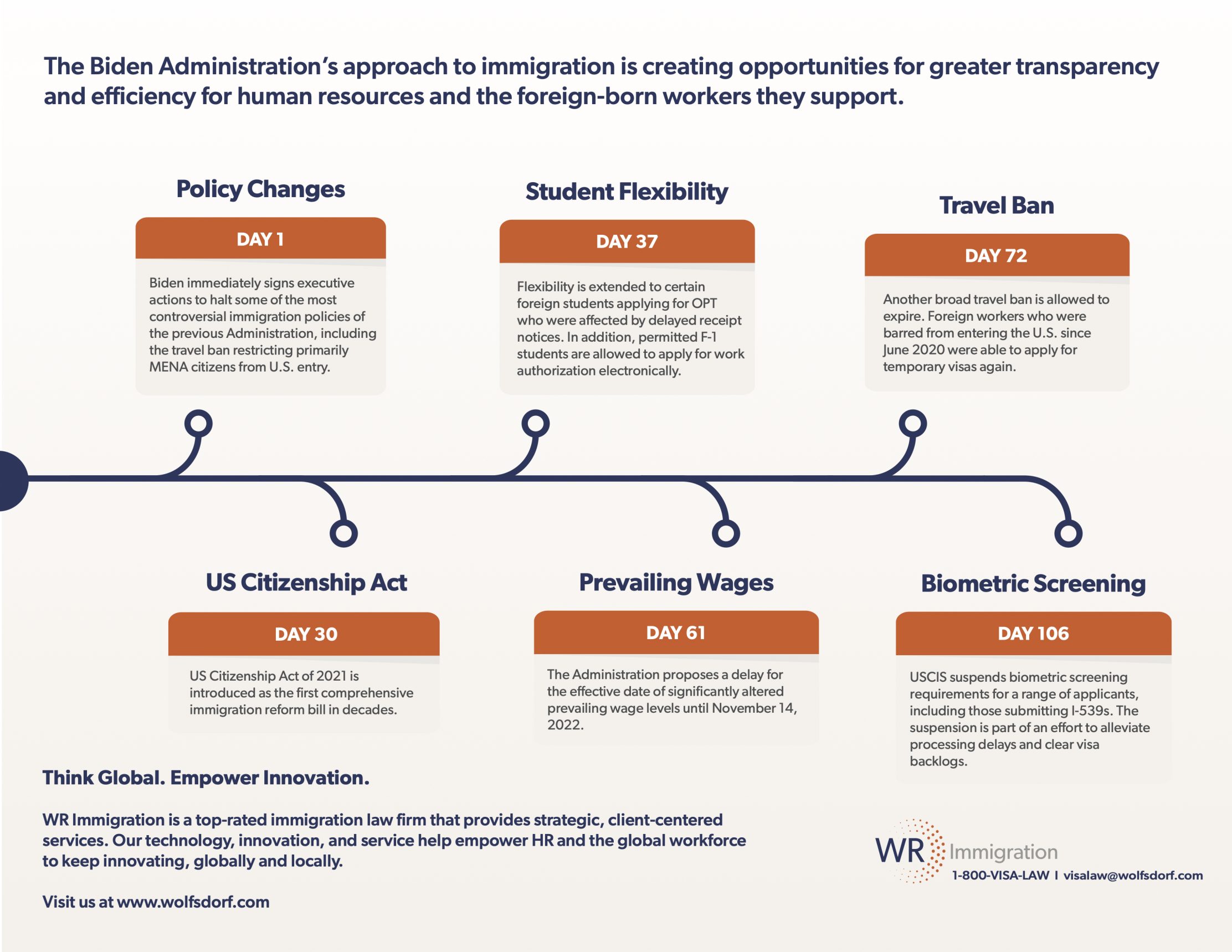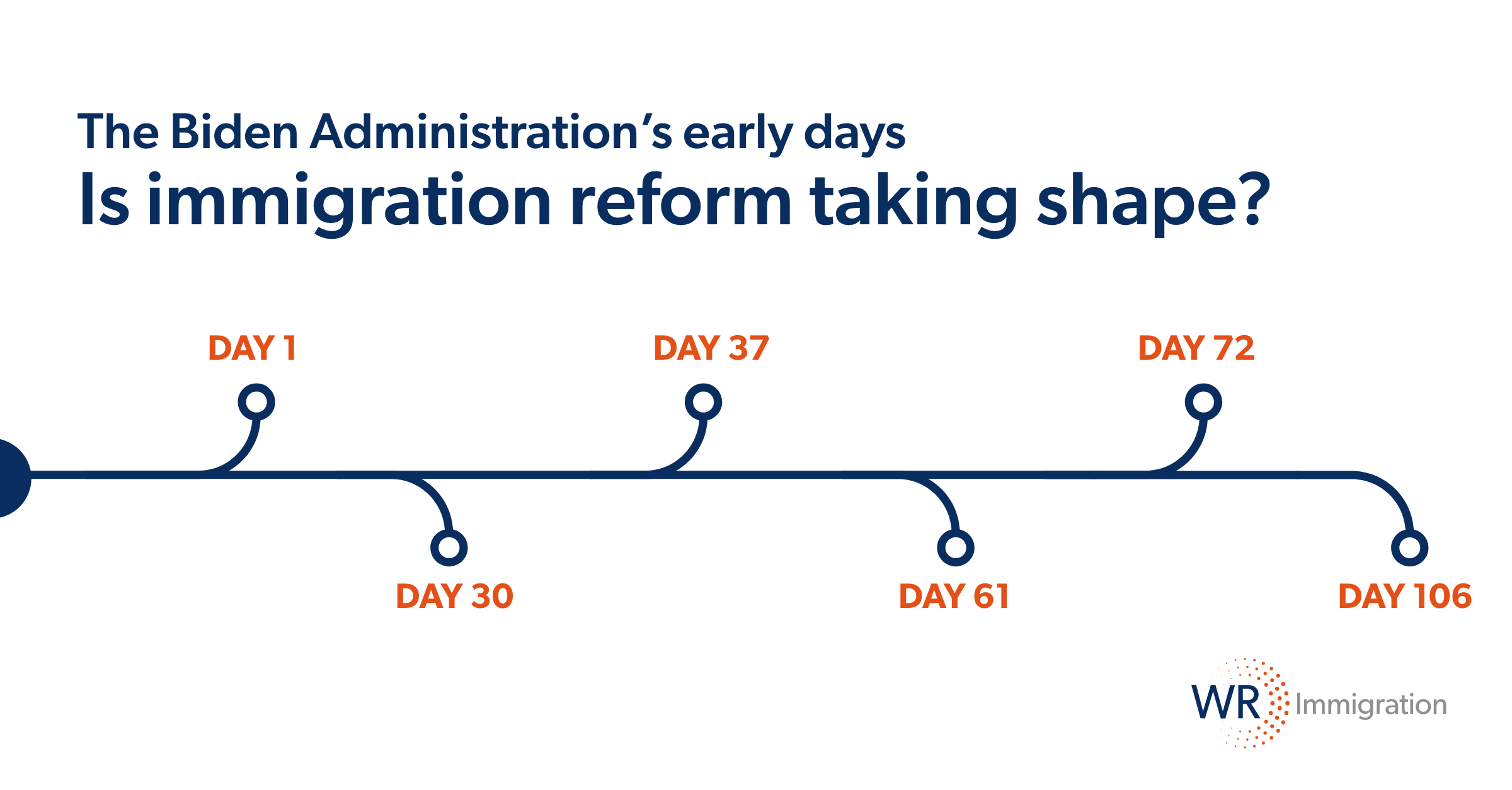With the first 100 Days of the Biden Administration behind us, we can confidently say that there is a clear effort underway to improve opportunities for foreign born workers in the U.S.
While we may not see comprehensive immigration reform — a highly sought-after goal among immigration lawyers and our clients for quite some time — the path so far has yielded significant progress towards a more efficient, predictable environment for HR leaders and their employees.
First and foremost, reversals of some regulations instituted by the previous Administration have re-opened borders and opportunities. Biden quickly put a halt to the widespread ban on immigrant workers, which was originally introduced to prevent entry by those who it was thought presented a risk to the U.S. labor market. He also put a hold on changes to the H-1B lottery, including the controversial wage-based allocation system.
Just as important, the new Administration chose not to restrict some visa types that were on the proverbial chopping block. These include H-4 EADs (for spouses of foreign workers) and STEM OPTs (for those studying in STEM fields), which were both threatened by proposed bans under the previous Administration.
As for the bigger picture, the major reform initiatives under the U.S. Citizenship Act of 2021 would bring a sea change to the way in which we view the visa system. “Dreamers” would benefit from expedited green card eligibility, the backlog of employment-based visas would be cleared, and spouses of H-1B holders would be granted work authorization.
This more efficient, predictable system is far from reality. As the Biden Administration pursues its immigration agenda, however, we anticipate more progress that will ease some of the challenges faced by our global mobility partners.

Get in touch with our WR Boston office with additional questions: https://wolfsdorf.com/location/boston/.


